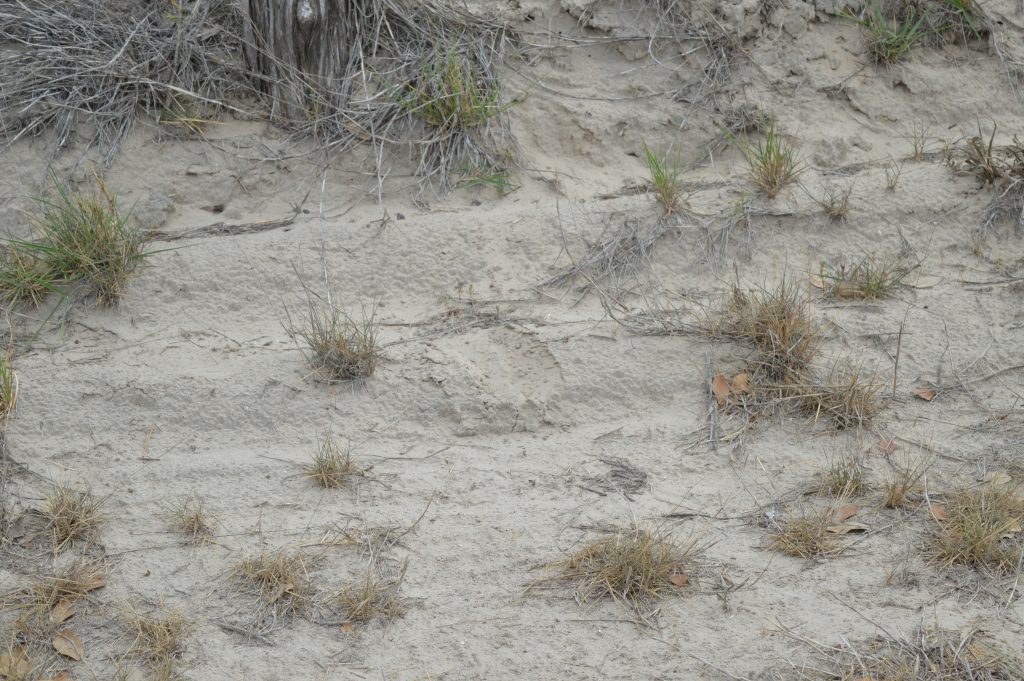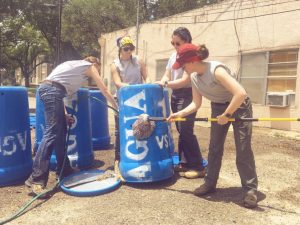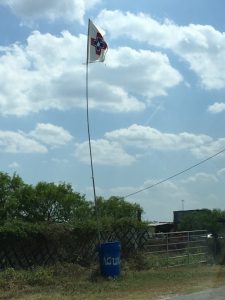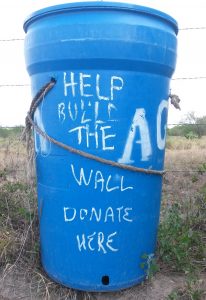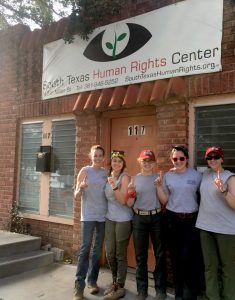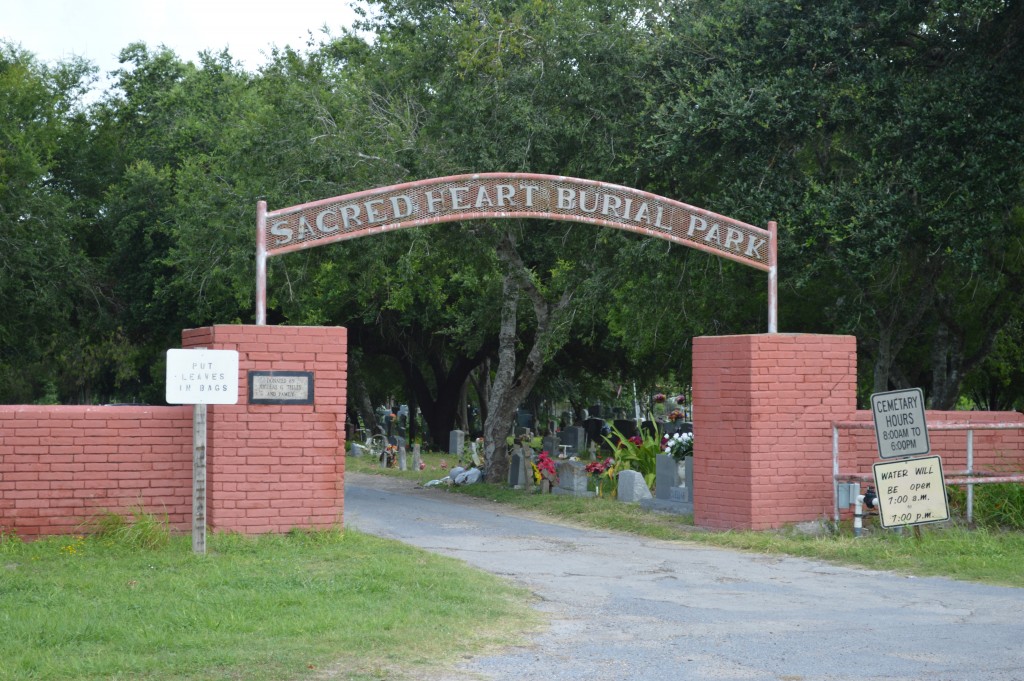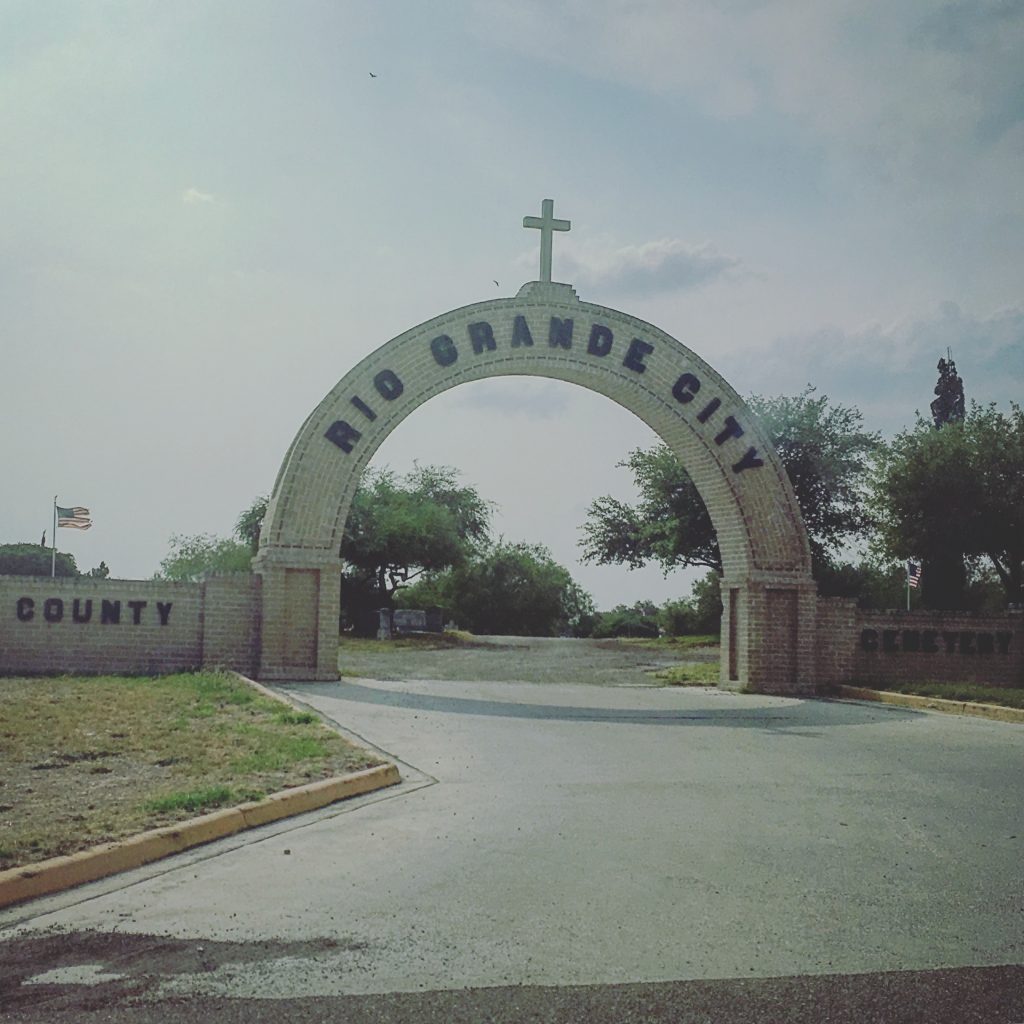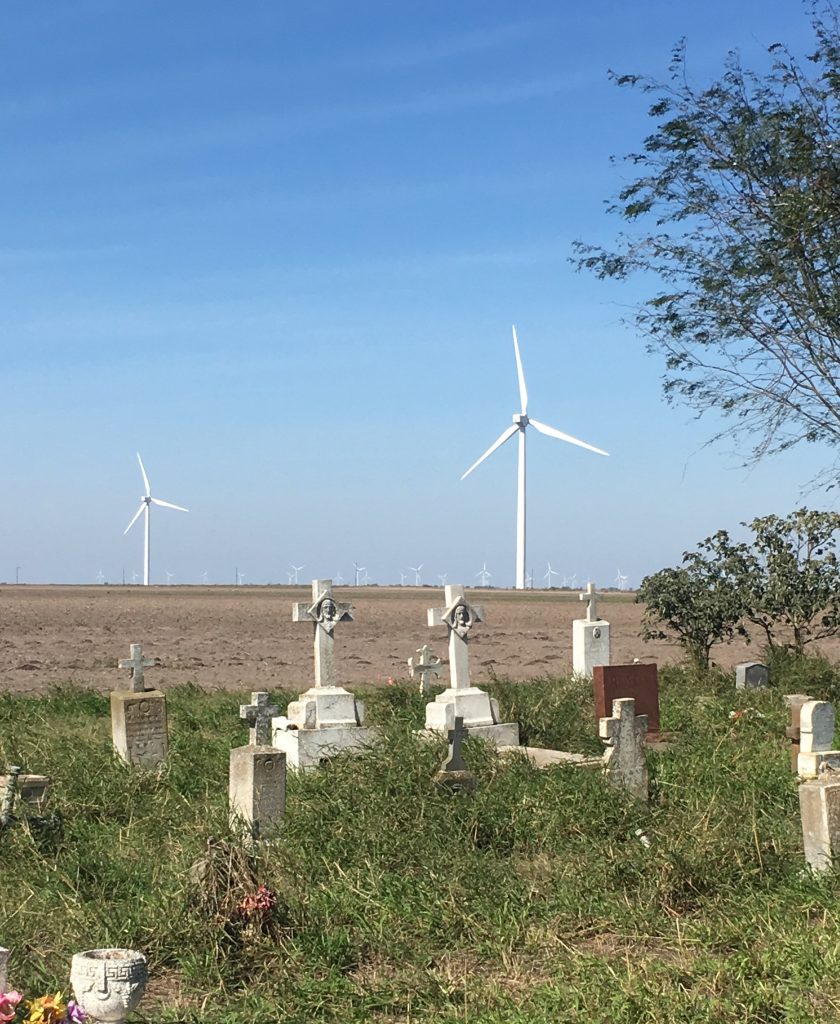It’s 10:30am in South Texas and it is 77 degrees Fahrenheit with 87% humidity. It feels like 90 degrees. There is a slight cool breeze, which feels remarkable. Soon the sun will be straight overhead and it will be beating down on all who cross its path. The paths along the ranches are pure sand with weeds. You have two options: walk along the sand in the open, or walk through dense brush and leaves without knowing what is lurking below. There are snakes, scorpions, spiders, lizards, and sticker burrs below the forest floor. The brush is so dense it is impossible to get through without getting scratched. When you get to a fence, you have to maneuver yourself over it somehow, with barbed wire at the top. All fences are much taller than waist high. Getting over them requires bending the fence. Ranch owners don’t appreciate bent fences so they leave ladders. The ladders that are strategically placed along the fences aren’t used because coyotes tell the migrants that the ladders are booby-traps. Water stations are not utilized even when they are essential to living because the coyotes tell the migrants they are a trap. Overhead, an aerostat looms watching for any body heat below.
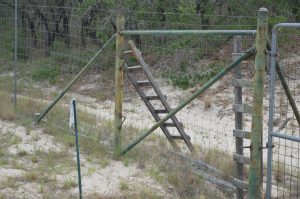
There is little room for error in a migrant’s journey from Latin America to South Texas. Trouble is everywhere. Today we walked along the paths of North La Copa Ranch and experienced a very small portion of a migrant’s journey. Needless to say, it was tough. We walked for roughly 2 hours searching for any migrants, deceased or alive, and by the end of our walk, we were drenched in sweat with little water left in our water bottles. We were fortunate because we had water, protection from rattle snakes, good boots, good gloves, sunscreen, and hats. We knew what was ahead of us and behind us. We had Deputy Don and his huge gun to protect us. We were most certainly safe. We had very little to worry about along our walk.
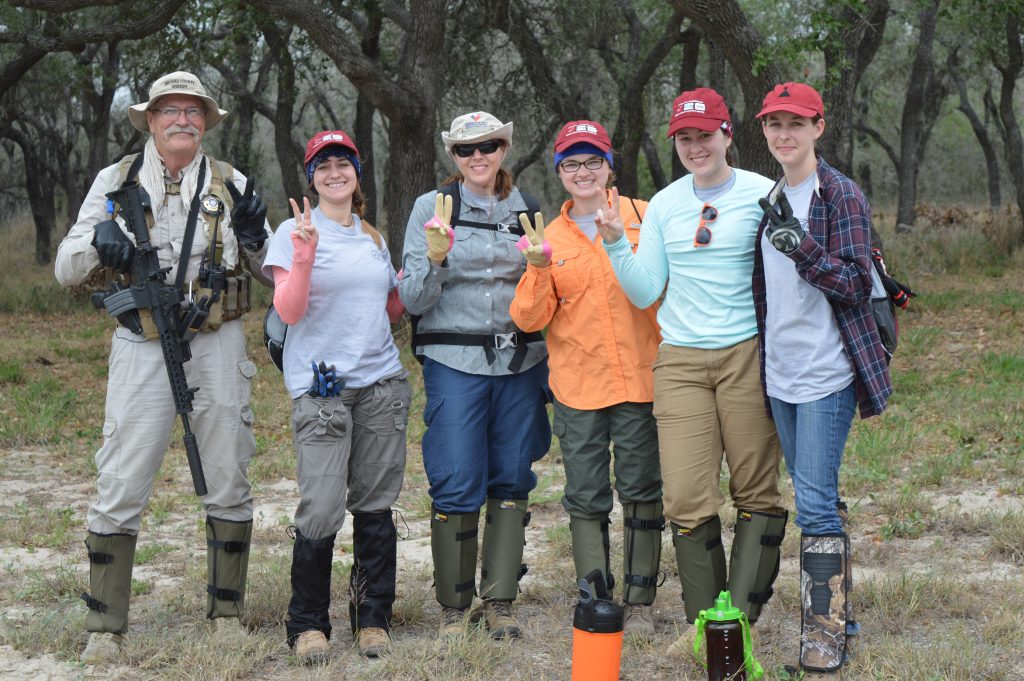
I think each of us experienced different emotions as we were conducting our search this afternoon. It was an extremely powerful experience. In 2 hours, we walked less than 1 mile of North La Copa Ranch. We didn’t climb any fences, we could walk wherever our heart desired, and we had water and at the end of our walk, we knew we would have air conditioning and food. At the beginning of our walk, it was pleasant. The humidity was high but it didn’t feel very hot because the sun was behind clouds and there was a breeze. By the second hour of our walk, the sun was beating down on us and as a result, the temperature had risen dramatically. By the end of the day, it was 98 degrees Fahrenheit. The high temperature coupled with the extreme humidity is almost unbearable. Our walk today made me understand why so many migrants give up along their journey. We have talked a great deal with Deputy Don and Eddie on our trip so far, and they have both said that when a migrant gives up, they are done for. They will die. I tried to immerse myself in the landscape as we were walking. I tried to imagine what it would be like if I was a migrant traversing the land. It is certainly enough to totally break a human. The choices one must make along the way are difficult. The terrain is unforgiving. The environment doesn’t care if you give up or not. Walking through South Texas requires a great deal of hope and a whole lot of will.
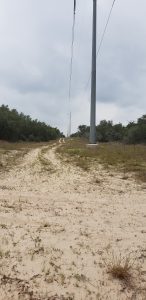
After a morning and afternoon of difficult realizations and a strenuous search at La Copa Ranch, we spent a wonderful evening at La Mota Ranch with Peggy and Bill Clark (Lasater). They invited us to their beautiful home to swim in their pool and eat a delicious meal with them. We had so much fun swimming in their cool pool after a hot day and talking with them about the history of their ranch and their many interests. We also had the opportunity to see the turkeys and peacocks they have on their property! Who knew peacocks can fly?!
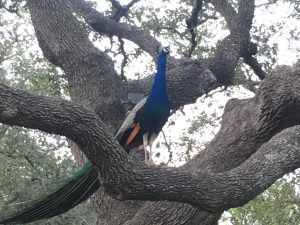
Today was a powerful day. I learned a ton today about myself and South Texas. But at the end of the day, we are all just footprints in the sand.
